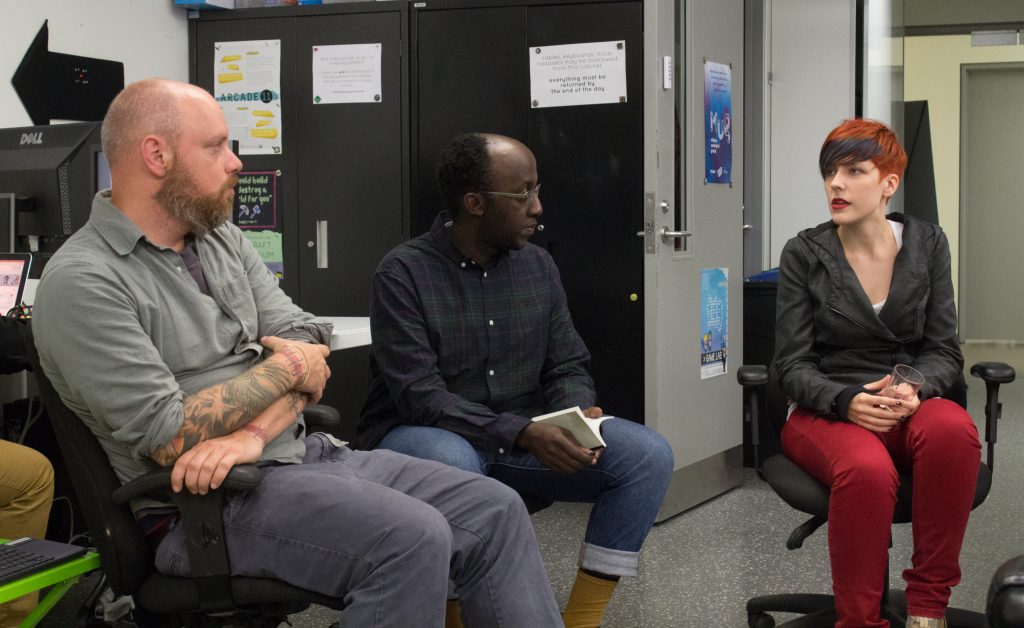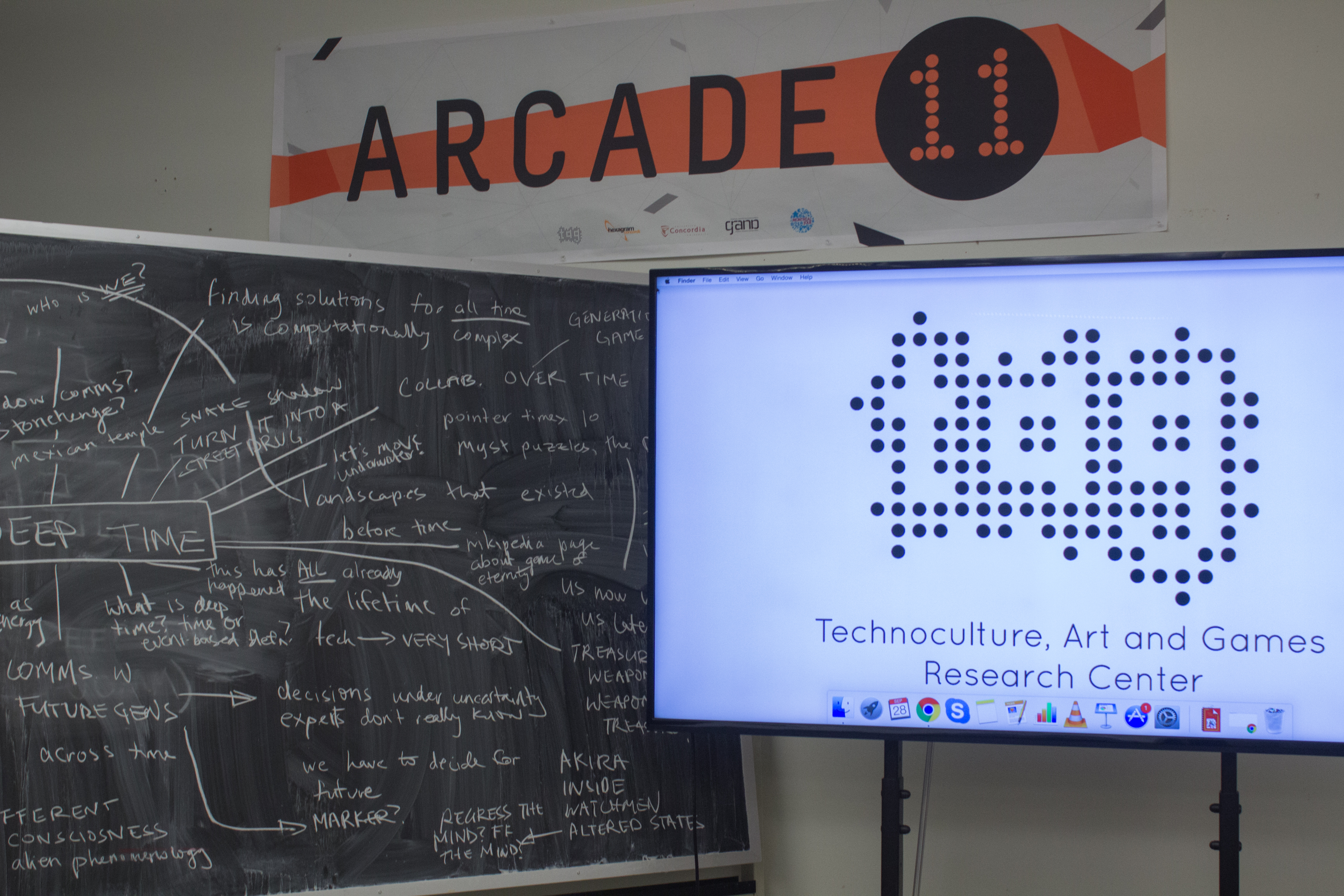A University of the Streets Café discussion with three Montreal game developers
University of the Streets Café held an open conversation titled “Representation and Identity in Video Games: Whose Stories are Told Through Gaming?” on Wednesday, Sept. 28.
The conversation was moderated by Rémy Paulin Twahirwa, a Master’s student studying political science at l’Université de Québec à Montréal [UQAM]. He is interested in researching how new technologies impact contemporary politics and social movements.
The event covered topics such as diversity in gaming, how to make gaming accessible to wider audiences and how gaming can improve people’s lives.

At Concordia’s Technoculture Arts and Games Research Centre (TAG), located in the EV building, a group of about 15 people gathered in a colourful room complete with game consoles, computers and ornaments, scattered across the room.
The discussion featured three game developers: Lateef Martin, the founder of Miscellaneum Studios, Jana Sloan van Geest, a game writer working at Ubisoft, and Tuuli Saarinen, a designer who’s worked on various independent games.
Like the University of the Streets Café’s other discussion series, the conversation was held as an open forum. The guest speakers and the moderator led the talk but questions were welcomed and encouraged at any time from attendees.
“I’ve always been very interested in how games are designed,” said Saarinen. “For me, the driving force has always been figuring out why I felt like games are not what they could be. I’ve always felt that they could be more,” she said. Saarinen began developing games after her background in research on gaming led her to game design. She brought her passion for the narrative aspect of video games to the discussion.
“I realized that it was all about what kind of stories were being told, and how they were being told. For me, it’s always been about finding the most natural way for games to tell stories,” she said. Saarinen said she believes that diversity should be an integral part of video games in order to improve the gaming experience for as many people as possible.
Diversity is not something the gaming industry is known for. A 2015 self-selected survey from the International Game Developers Association found that 75 per cent of the worldwide gaming industry is male and 76 per cent of the industry is white.
Martin is currently working on his game “Z’Isle,” which has an open Kickstarter, an online funding platform through which anyone can donate to help fund the project. The world of “Z’Isle,” according to the game’s website, is a world complete with Montreal-based zombies, “incorporating themes of survival, social equity, and sustainability.”
Martin dedicates his game-making career to delivering entertainment “with a mandate to represent people of colour, women, the LGBTQ community and other marginalized communities in a positive light.” He believes that diversity is important in video games because they reflect real societies.
“Negative stereotypes and tropes can be very damaging,” Martin said. “A lot of people tend to downplay it [by saying] ‘it’s just a game’, ‘it’s just a movie.’ Oh yeah? Close your eyes and think of the word ‘pimp.’ What do you see? I’m pretty sure it’s a black guy. That’s because we’ve been taught that all our lives.”
On a more positive note, Martin described video games as “an incredible way to connect with people and give them an experience that could change their lives.”




